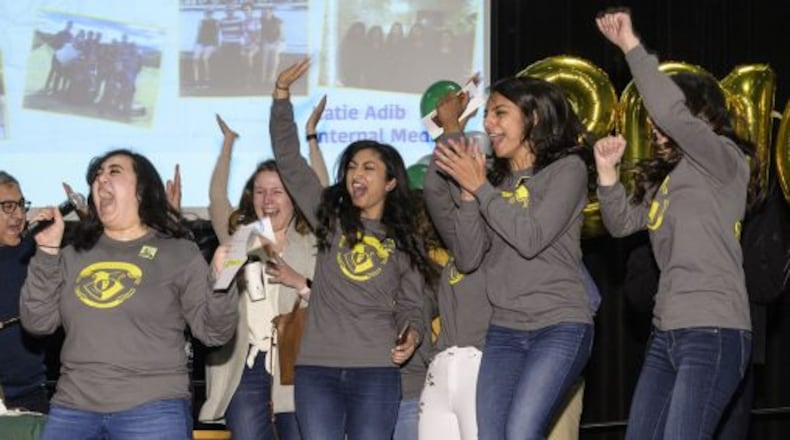However, because of the pandemic, this year 122 local medical students celebrated at home with a virtual ceremony.
“This is what they have dreamt about for most of their adult lives,” said Gary LeRoy, associate dean of student affairs and admissions.
Medical student Maya Prabhu, who matched with Christ Hospital for family medicine, which was her top choice, said it was special that she was able to celebrate at home with her family, and her sister filled the role of the videographer and photographer to capture the moment for the match. She said the school and class council did a good job hosting the virtual event.
“They did a really good job making it feel special and so intimate even though we were all virtual,” she said.
A residency is needed to become a licensed physician. Medical students apply, interview and rank their preferences for programs and hope to be matched with a program that likewise wants the resident.
This year, the pandemic added twists to the already intense process. Some of these changes include that COVID-19 shut down weekslong stints at programs that often serve as residency auditions; interviews moved online; and because travel was no longer necessary, competitive students accepted invitations to interview at many more programs than in prior years.
“That has led less-competitive but still-solid candidates to worry that the match won’t go well for them since programs may pursue the same top-tier candidates,” the AAMC wrote.
Fifteen graduates will complete their residencies at Wright State University.
Two medical students who are active-duty military members matched for competitive military residencies: one in pathology in the Army and the other for general surgery in the Air Force.
More than 41% of the Wright State graduates will remain in Ohio during residency and 34% will remain in Dayton.
More than a third will enter a primary care field — family medicine, internal medicine, pediatrics and combined internal medicine-pediatrics.
The rest matched in the following specialties: anesthesiology, dermatology, emergency medicine, neurology, obstetrics and gynecology, ophthalmology, orthopedic surgery, otolaryngology, pathology, psychiatry radiology, radiation oncology, surgery and plastic surgery.
About the Author

